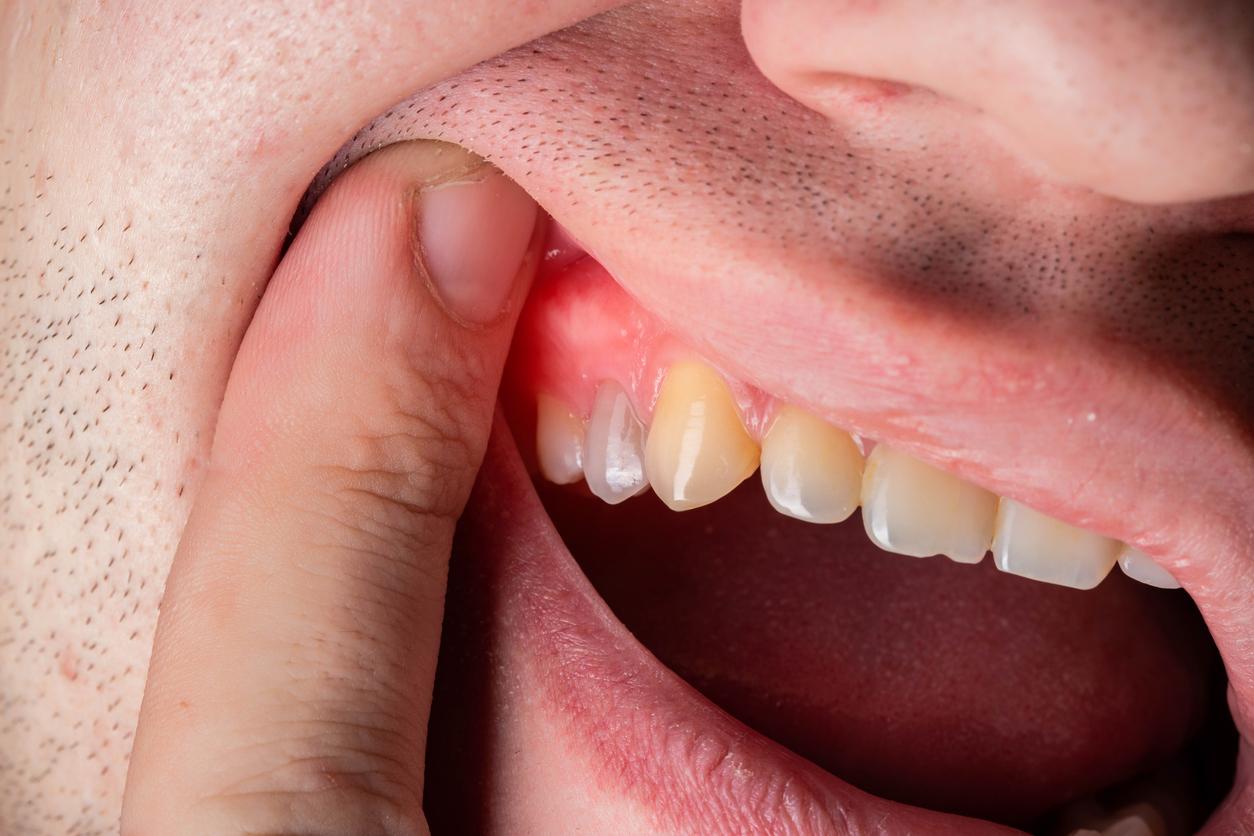Poor dental health increases the risk of gum disease like periodontitis. This can lead to the appearance of microbial organisms that are harmful to cardiovascular health.

- Poor dental health increases the risk of heart disease, including stroke.
- This is linked to the passage of bacteria from the gums into the blood.
- To limit the risks, it is important to have good oral hygiene and to consult a dentist regularly.
Heart health also comes through the mouth. Healthy gums are associated with a reduction in certain cardiovascular risks. Franck Nichols, professor in the department of dentistry at the University of Connecticut, USA, explains the links between the gums and the heart in a text published on the establishment’s website.
How does gum health affect heart health?
“Periodontal disease (particularly periodontitis) is associated with a buildup of microbial organisms in the crevices around the teeth, which may increase gingival inflammation or redness of the gums and bleeding related to brushing or using toothbrush. dental floss”, he recalls. These microbial organisms can thus penetrate the gums, which will increase inflammation and tissue degradation, but this can also have consequences on other organs. The specialist cites one of these organizations, Porphyromonas gingivalis : when it passes into the blood, it activates monocytes, a type of white blood cell, which can then attach to the walls of the arteries. “Arterial walls become inflamed and accumulate cholesterol and other lipids.”, he warns. Eventually, this leads to the formation of plaques on the artery walls, called atherosclerosis, which can lead to stroke or other serious cardiovascular problems.
Teeth and heart: bacterial organisms present throughout the body
“In our research, we characterized new classes of lipids produced by P. gingivalis (…), he explains. These lipids are abundant on diseased teeth from sites of periodontitis, but they are also present throughout the body, including in the blood, artery walls with atherosclerotic plaques, brain samples and the gastrointestinal tract. According to him, this can have different consequences on the body and not only on cardiovascular health.
Cardiovascular health: it is necessary to take regular care of your teeth
To limit the risk, he points out that it is necessary to regularly take care of your oral health. “The tartar that forms in the gum line contains very high levels of P. gingivalis lipids which may contribute to the accumulation of specific lipids in diseased gum tissue, warns the dental health specialist. The accumulation of subgingival tartar is relatively slow, but if not removed by periodic cleanings, tartar builds up over time so that it becomes more difficult to remove and retains larger amounts. high bacterial lipids.” To reduce the accumulation of tartar and bacteria, you must brush your teeth, floss and regularly consult a dentist. The latter can carry out more thorough cleanings which will eliminate tartar.

How to spot gum disease?
If you spot signs of periodontal disease, it is necessary to consult a dentist quickly. This may be a change in the appearance of the gums: they may be red, swollen or even bleed when brushing your teeth. “If the disease is left untreated, its long-term progression can lead to loosening or loss of teeth.warns Franck Nichols.















